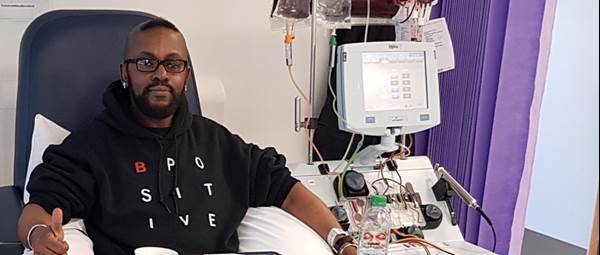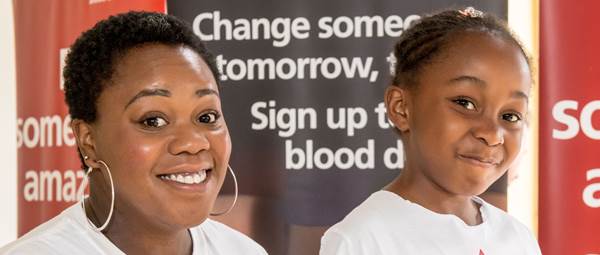“Is she coming?”: a donor and recipient meet
Solome, who has sickle cell, met Zamzam, the donor with the same rare blood type who helped keep her alive.
“Is she coming?”, asks Solome Mealin, as she waits at the Therapeutic Apheresis Services Unit in Leeds.
Solome visits this ward every 6 weeks to receive red cell exchanges to help prevent the painful symptoms of sickle cell.
But today she’s here to meet 26-year-old Zamzam Aba-Nur, one of the blood donors who has helped save her life.
They both have the rare Ro subtype, which is often needed in transfusions for people with sickle cell.
As Zamzam walks onto the ward, the pair share an emotional hug and start chatting.
Solome, 39, explains how her mum died from sickle cell disease and transfusions are giving her precious time with her own children.
She tells Zamzam: “Your blood is coursing through my veins. Because of you and blood donation I can have time with my children. I never had a chance to be with my mum.
“Because of blood donors, I am here watching them grow up. I cannot thank you enough.”
Your blood is coursing through my veins. Because of you and blood donation I can have time with my children. I never had a chance to be with my mumSolome
Zamzam, says: “When you donate, it’s really simple and you just get on with your day – meeting Solome has brought home that it’s actually life changing for someone else.
“I feel very lucky to have seen how my donations are making a difference.”
Although more and more black people are giving blood there’s a shortage of donors with the Ro subtype, which is 10 times more common in black people than white people.
After meeting, Solome and Zamzam discuss the need for black donors and how easy it is to give blood:
Solome says: “People from black backgrounds can have that rare blood that some of us survive on.”
“Giving blood isn't actually hard to do. So, if you’re thinking about it, please do.”
Zamzam says: “Just go out and do it. I mean, what have you got to lose?”
Start your blood story by signing up to give blood.

Sickle cell and blood transfusions
Blood transfusions can make a huge difference to people with sickle cell

The Ro subtype
Only 2% of regular blood donors in England have the Ro subtype
What makes blood types rare?
Why some blood types are harder to find


